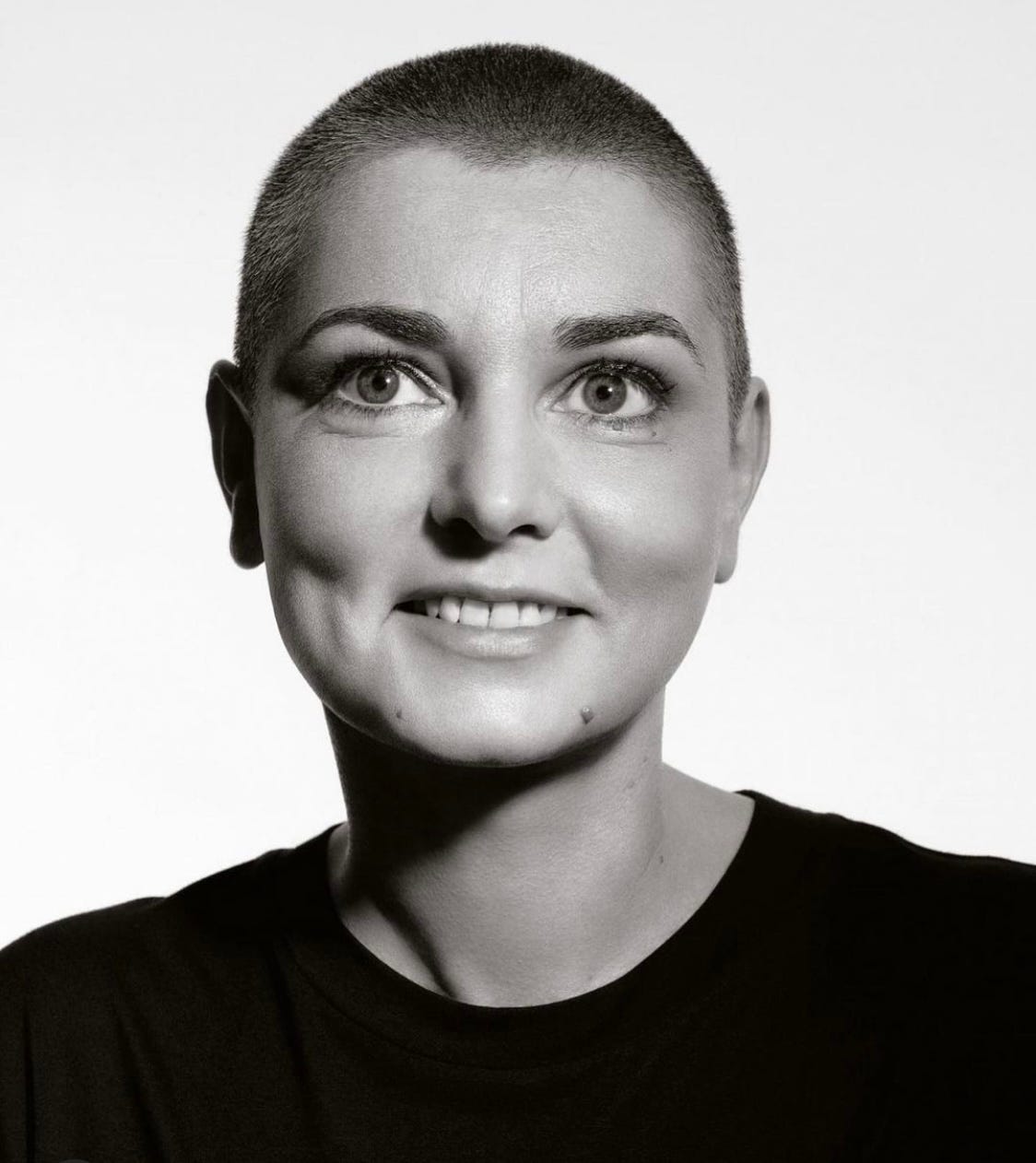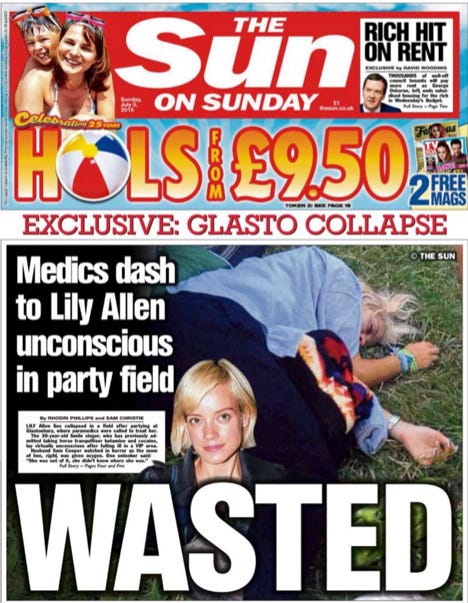Why do we only glorify 'difficult' women like Sinéad O'Connor after death?
A tale about what this world does to women who speak truth to power
“It was open season on treating me like a crazy bitch” said Sinéad O’Connor, years after tearing up a photo of the Pope on stage, an act for which she was booed and jeered. Her career never recovered: people accused her of self-sabotage; labelled her unhinged; sniped that she courted controversy. Such easy things to say about a woman’s life when it appears anything less than linear and perfect. Fodder for lazy headlines. “She could have done it all so differently” - I’ve seen that sentiment repeated over and over since her sad death, aged just 56.
But why should she? If the outpouring of grief in recent days has shown one thing, it’s surely that the problem was always ours and never hers.
This week has made me feel despair and anger that we are here again, expressing our regret that a woman wasn’t treated better during her lifetime. It has left me questioning why we can’t lift women up while we’re lucky enough to still have them with us. Why must we continue this cycle of destruction, followed by glorification? Why is it that, only in death, we realise what mistakes were made? How can you be the punchline one minute, exalted the next?
Few people encapsulated what it is to be perceived as a ‘difficult’ woman better than Sinéad O’Connor. Hers is a tale about what this world does to women who refuse to be quiet, have opinions and speak truth to power. Being angry, strong, unafraid to offend are not traits we value - unless you’re a man.
Add to that the hallmarks of the female experience - torment, pain and dismissal - and you have the sort of woman that strikes fear into the hearts of certain groups of people. A woman they would rather keep down, mock and shame, lest the rest of us get any ideas.
It’s no coincidence that the scene in Fleabag, in which Belinda (played by Kristen Scott Thomas) talks about women having “inbuilt pain” went viral. We all know what that feels like, whether physical or mental, or both. Often, we want to shout about it and warn other women - and we do, privately, behind closed doors. Not many have the courage or can bear the consequences of doing so publicly.
The causes we champion now are many of the things that O’Connor called out. She was arrested for attempting to gain entry to the Irish parliament to protest the Supreme Court decision to refuse an abortion to a 14-year-old girl. She defended Britney Spears while the rest of us were still pointing and laughing. She was open about her bipolar and time spent in mental health institutions. She shared the story of being abused by her mother. Spoke about her gynaecological agonies. She declined to perform painlessness.
Perhaps none of this sounds very shocking, but it was then and especially from the mouth of an elfin woman, with a beautiful voice, who refused to look or act in the way the pop music industry demanded. Who used her platform to shine a light on injustice and knew her vulnerability and authenticity were actually symbols of power - the hallmarks of all good influencers in 2023.
In death, she joins the ranks of other women: Paula Yates, Caroline Flack, Amy Winehouse, Peaches Geldof, Marilyn Monroe. While it does feel a bit uncomfortable to group these individual lives together, there is a common thread that unites them: tormented women who were further tormented. Human catnip to the tabloid media, who used their pain as misogynistic entertainment and which we often don’t criticise until it’s too late.
We know it’s wrong. There’s a reason that Lily Allen’s tweet about her treatment at the hands of the tabloids - a front page of The Sun, declaring her ‘WASTED’ - went viral last week.
‘Peaches Geldof, Amy Winehouse and Caroline Flack were all bullied and abused, subjected to the same kind of harassment that I and many others were, and at the same time,’ she posted. ‘It was the culture back then, we were fair game, because we were female, young, articulate, well paid, brilliant at our jobs, vulnerable and relatable, we all wore our hearts on our sleeves and spoke our truths. And for that we needed to be destroyed.’
Female discomfort may make many people feel uncomfortable, but it’s also a currency we recognise. Women are raised to compare and compete, however unconsciously. We are taught to treat stories of female pain as cautionary tales and even better if the downfall is of a beautiful woman on a public pedestal. The tabloids push these narratives, but they’re also not entirely wrong to claim there’s an audience willing to lap them up. Think Allen, Lindsay Lohan, Paris Hilton, Sheridan Smith. They write, we click.
We can’t turn the clock back and undo the backlash, the criticism, the damage done, the hurt caused. But maybe we can learn a lesson, at long last, about how we act towards brave and imperfect women in the public eye, while they’re still with us.
I know many women did draw strength from O’Connor - particularly those in Ireland, for whom she represented an alternative vision that I’ll never be able to fully appreciate. There was a gulf between those who treated her cruelly and those whose lives she touched.
Yet many of the same people who mocked and shamed her while she was alive, have this week been praising O’Connor as an icon, a fighter, an inspiration, a truth-teller ‘ahead of her time’ in death. If only she could have seen her moment of vindication.
“Some people may end up really regretting the way they’re treating her,” she said about Britney in 2007. Will we do better next time?
What do you think about the treatment of Sinéad O’Connor? Tell me below…
Tell Me About It with Claire Cohen is a reader-supported publication. If you enjoyed reading and would like to have it land in your inbox every week, please consider becoming a paid subscriber below - your support means the WORLD.
And, if they might enjoy, please do share and tell your friends about it, too. Thank you!






100%. we love making idols of celebrity women before sacrificing them for our own twisted entertainment (or because they pointed out injustice when it was easier to turn away). regardless of the reason, it’s wrong and hurtful and can have deadly consequences. thanks for writing and sharing.